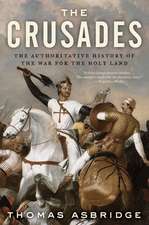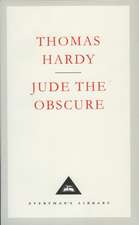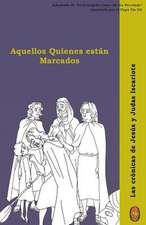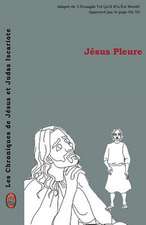Don Quixote
Autor Miguel De Cervantes Traducere de John Ormsbyen Limba Engleză Paperback
| Toate formatele și edițiile | Preț | Express |
|---|---|---|
| Paperback (12) | 43.72 lei 3-5 săpt. | |
| CREATESPACE – | 43.72 lei 3-5 săpt. | |
| CREATESPACE – | 43.72 lei 3-5 săpt. | |
| Vintage Publishing – 6 ian 2005 | 70.81 lei 23-34 zile | +41.66 lei 6-10 zile |
| Selfmadehero – sep 2011 | 89.58 lei 3-5 săpt. | +25.43 lei 6-10 zile |
| Les prairies numériques – 30 aug 2020 | 110.64 lei 3-5 săpt. | |
| CREATESPACE – | 119.12 lei 3-5 săpt. | |
| – | 135.44 lei 3-5 săpt. | |
| – | 151.81 lei 3-5 săpt. | |
| CreateSpace Independent Publishing Platform – | 170.87 lei 3-5 săpt. | |
| CREATESPACE – | 261.22 lei 3-5 săpt. | |
| Devoted Publishing – 14 dec 2016 | 227.67 lei 6-8 săpt. | |
| E-Kitap Projesi & Cheapest Books – 5 feb 2025 | 323.41 lei 38-44 zile | |
| Hardback (5) | 68.45 lei 3-5 săpt. | +48.97 lei 6-10 zile |
| MacMillan Collector's Library – 20 sep 2017 | 68.45 lei 3-5 săpt. | +48.97 lei 6-10 zile |
| EVERYMAN – 26 sep 1991 | 117.67 lei 23-34 zile | +57.05 lei 6-10 zile |
| Prince Classics – 24 apr 2019 | 299.30 lei 38-44 zile | |
| Throne Classics – 27 mai 2019 | 299.30 lei 38-44 zile | |
| Simon & Brown – 24 oct 2018 | 431.82 lei 38-44 zile |
Preț: 170.87 lei
Nou
Puncte Express: 256
Preț estimativ în valută:
32.70€ • 34.29$ • 27.22£
32.70€ • 34.29$ • 27.22£
Carte disponibilă
Livrare economică 12-26 martie
Preluare comenzi: 021 569.72.76
Specificații
ISBN-13: 9781530781126
ISBN-10: 1530781124
Pagini: 578
Dimensiuni: 189 x 246 x 30 mm
Greutate: 1.02 kg
Editura: CreateSpace Independent Publishing Platform
ISBN-10: 1530781124
Pagini: 578
Dimensiuni: 189 x 246 x 30 mm
Greutate: 1.02 kg
Editura: CreateSpace Independent Publishing Platform
Descriere
Descriere de la o altă ediție sau format:
Widely regarded as the world's first modern novel, and one of the funniest and most tragic books ever written, Don Quixote chronicles the famous picaresque adventures of the noble knight-errant Don Quixote de La Mancha and his faithful squire, Sancho Panza, as they travel through sixteenth-century Spain. Unless you read Spanish, you've never read Don Quixote.
Widely regarded as the world's first modern novel, and one of the funniest and most tragic books ever written, Don Quixote chronicles the famous picaresque adventures of the noble knight-errant Don Quixote de La Mancha and his faithful squire, Sancho Panza, as they travel through sixteenth-century Spain. Unless you read Spanish, you've never read Don Quixote.
Notă biografică
Miguel de Cervantes Saavedra (29 September 1547 - 23 April 1616) was a Spanish writer. His most famous book was Don Quijote de la Mancha. It is considered the first modern novel, and therefore Cervantes was the first novelist.The book has been published in 65 countries. The work is considered among the most important in all of literature. He is sometimes called "The Prince of Satire." In 1570, Cervantes had enlisted as a soldier in a regiment of the Spanish naval elite corps, Infantería de Marina, stationed in Naples, then a possession of the Spanish crown. He was there for about a year before he saw active service. In September 1571, Cervantes sailed on board the Marquesa, part of the galley fleet of the Holy League, Spain, the Republic of Venice, the Republic of Genoa, the Duchy of Savoy, the Knights Hospitaller based in Malta, and others, under the command of King Philip II's illegitimate half brother, John of Austria, that defeated the Ottoman fleet on October 7 in the Gulf of Lepanto near Corinth, at great cost to both sides. Though taken down with fever, Cervantes refused to stay below, and begged to be allowed to take part in the battle, saying that he would rather die for his God and his king than keep under cover. He fought bravely on board a vessel, and received three gunshot wounds - two in the chest, and one which rendered his left arm useless. In Journey to Parnassus he was to say that he "had lost the movement of the left hand for the glory of the right" (he was thinking of the success of the first part of Don Quixote). Cervantes always looked back on his conduct in the battle with pride; he believed that he had taken part in an event that would shape the course of European history.






















